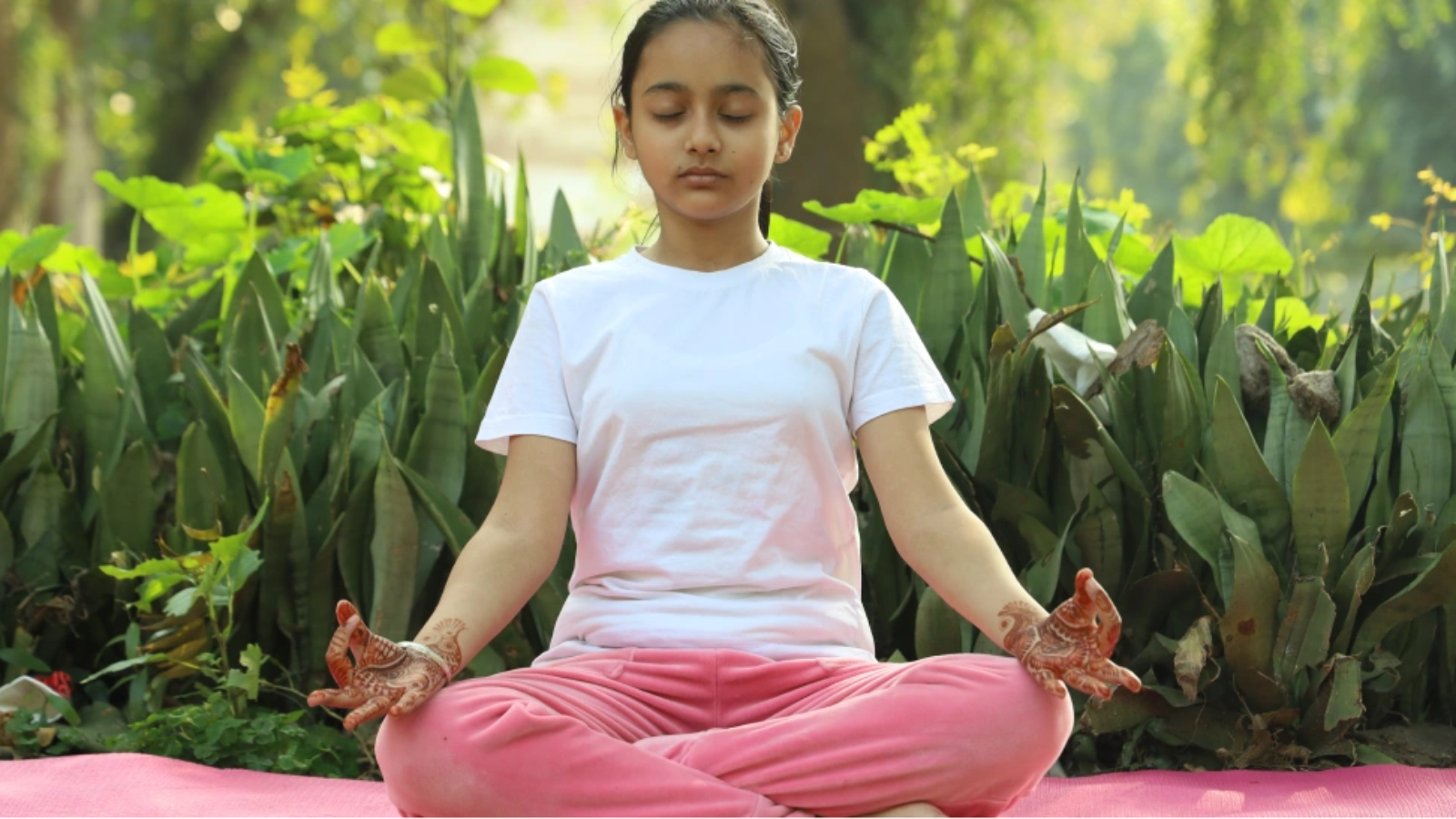- Emotional well-being: Meditation helps children develop emotional resilience and regulation. By learning to focus their attention and observe their thoughts and feelings without judgment, children can develop better self-awareness, manage stress and anxiety, and cultivate a sense of inner calm. It equips them with essential skills to handle challenging emotions and promotes a positive outlook on life.
- Concentration and focus: Regular meditation practice enhances children’s ability to concentrate and maintain focus. In an increasingly distracted world, meditation provides a space for children to train their attention muscles, leading to improved academic performance, better problem-solving skills, and enhanced creativity.
- Stress reduction: Children face various stressors in their daily lives, including school pressure, peer relationships, and extracurricular activities. Meditation serves as a powerful tool to reduce stress and anxiety. It helps children develop a sense of relaxation, resilience, and the ability to cope with stressful situations effectively.
- Improved self-esteem and confidence: Meditation cultivates a positive self-image and self-acceptance in children. As they learn to connect with their inner selves and embrace their strengths and weaknesses, they develop a greater sense of self-worth, leading to improved self-esteem and confidence.
- Enhanced social skills: Meditation encourages empathy, compassion, and kindness towards oneself and others. Children who meditate tend to exhibit better social skills, such as improved communication, understanding, and cooperation. It helps them build stronger and healthier relationships with peers, family, and the community.
- Better sleep patterns: Sleep plays a crucial role in children’s growth and development. Meditation helps children relax their minds and bodies, promoting better sleep patterns and improved quality of rest. It can be especially beneficial for children who struggle with sleep-related issues or disturbances.
- Mind-body connection: Meditation fosters a connection between the mind and body, allowing children to develop a deeper understanding of their physical sensations, emotions, and overall well-being. This awareness can lead to better self-care practices, healthy habits, and an overall balanced approach to life.
- Coping with challenges: Life presents various challenges and setbacks. Meditation equips children with effective tools to cope with difficulties and bounce back from setbacks. It helps them develop resilience, adaptability, and a positive mindset, enabling them to navigate through life’s ups and downs with greater ease.
It is important to note that when introducing meditation to children, it should be done in an age-appropriate and enjoyable manner. Various techniques like guided visualizations, breathing exercises, and mindfulness games can be used to make meditation engaging and accessible for children of different ages. Additionally, parental support and guidance are crucial in creating a consistent meditation practice and reaping the benefits over time.


Add a Comment